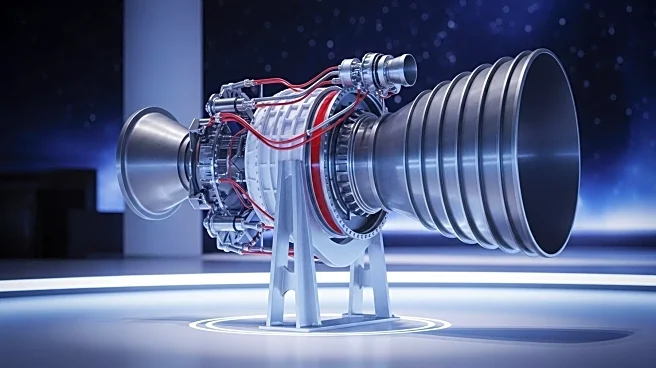What's Happening?
Pam Melroy, a former NASA Deputy Administrator and space shuttle commander, has joined the Board of Directors at Venus Aerospace. This Houston-based startup recently achieved a significant milestone by launching a rotating detonation rocket engine (RDRE), a technology that promises increased efficiency and thrust. Melroy's extensive experience in aerospace and defense sectors is expected to aid Venus Aerospace in expanding its operations and integrating RDRE technology into various applications. The company's successful test flight in May has attracted considerable industry attention, positioning Venus Aerospace as a leader in innovative propulsion technology.
Why It's Important?
The development of RDRE technology represents a major advancement in rocket propulsion, offering a 15% increase in efficiency over conventional engines. This could revolutionize space travel and defense applications by reducing costs and increasing payload capacities. Melroy's involvement brings credibility and expertise to Venus Aerospace, potentially accelerating the adoption of RDRE technology across civil, defense, and commercial sectors. The breakthrough could enhance the U.S.'s competitive edge in the global aerospace industry, fostering economic growth and technological leadership.
What's Next?
Venus Aerospace plans to integrate RDRE technology into real-world systems for its customers, focusing on defense, civil, and commercial space industries. The company aims to develop applications such as high-speed global travel and advanced space exploration vehicles. As Venus scales its operations, it may attract further investment and partnerships, driving innovation in aerospace propulsion. The successful implementation of RDRE technology could lead to new opportunities in space exploration and defense strategies.
Beyond the Headlines
The RDRE breakthrough could have long-term implications for global space competition, with other nations potentially seeking to develop similar technologies. This advancement may also influence future space policy and international collaborations. The potential for high-speed global travel could transform transportation industries, impacting economic and cultural exchanges worldwide.









